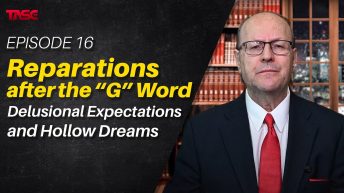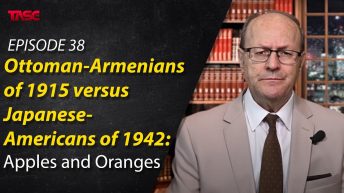The Armistice between Turkey and Britain was signed at Mudros on October 30, 1918. On March 16, 1920, Allied military officially occupied Istanbul and many prominent Turkish nationalist leaders were arrested. In groups totaling to 144 prominent Turks were deported to the island of Malta, a British protectorate at the time. The Turks were accused of 3 categories of alleged offences: 1-failure to comply with Armistice terms, 2- ill-treatment of British prisoners of war, 3-outrages to Armenians. Andrew Ryan, a known Turk-hater and schemer who had served as interpreter in the British Embassy at Istanbul before the War, arrived at Istanbul in November 1918. With inputs from the Armenian and Greek informants and the Armenian Patriarchate, several “blacklists” of alleged “Turkish War Criminals” were drawn up. On February 1919, the Tevfik Pasha’s Government invited 5 neutral Governments of Europe, namely Spain, Netherlands, Denmark, Sweden, and Switzerland, to contribute 2 legal scholars each to a blue-ribbon committee created to investigate the charges against Turks. This move clearly shows that Turkey had nothing to fear about the alleged war crimes. The British Foreign Office obstructed it as the British knew that any discovery would only embarrass Britain because of the outrageous lies in the wartime propaganda Blue Books defaming and demonizing Turks, Germans, and others. In retaliation, Mustafa Kemal Pasha, the Leader of the Turkish National Movement, ordered the arrest of some 20 British officers in Anatolia. On February 8, 1921, the Attorney General informed the Foreign Office that he was concerned only with 8 Turkish deportees accused of ill-treatment of British prisoners of war. He suggested that the High Commissioner at Istanbul should be asked to prepare the evidence against those Turks. The Governor of Malta, too, suggested that some of the Turkish exiles should be released and the remaining ones be informed of the charges against them. But no evidence existed in the British archives in London and Lord Curzon was hoping to get incriminating documents from the British High Commissioner at Istanbul. As Andrew Ryan unabashedly explained, the accusations” were drawn up not based on evidence but on a lynch mob mentality of “presumption of guilt.” Rumbold in forwarding to London the “evidence” against the deportees, wrote that very few witnesses were available, that [the] Armenian Patriarchate at Istanbul had been the principal channel through which information had been obtained. He admitted that “under these circumstances the Prosecution will find itself under grave disadvantage”, but he hoped that [the] American Government could supply “a large amount of documentary information.” Lord Curzon informed Sir A. Geddes, the British Ambassador at Washington, that there was a “considerable difficulty” in establishing proof of guilt against the Turkish detainees at Malta. Curzon requested that Geddes “ascertain if United States Government are in possession of any evidence that would be of value for purpose of prosecution…” On July 13, 1921, the British Embassy in Washington returned the following famous reply: “…I have the honour to inform your Lordship that a member of my staff visited the State Department yesterday, the 12th instant, in regard to the Turks who are at present being detained at Malta with a view to a trial… He was permitted to see a selection of reports from United States Consuls about the atrocities committed in Armenia during the recent war, the reports judged by the State Department to be the most useful for the purposes of His Majesty’s Government being chosen from among several hundreds. I regret to inform your Lordship that there was nothing therein which could be used as evidence against the Turks who are being detained for trial at Malta… ” Sir Rumbold wrote to Lord Curzon that “Failing the possibility of obtaining proper evidence against these Turks which would satisfy a British Court of Law, we would seem to be continuing an act of technical injustice in further detaining the Turks in question…” All Ottoman State archives were easily accessible to the British occupation authorities in Istanbul. Yet, the British High Commissioner was unable to forward to London any evidence in the legal sense. There was nothing in the British archives, either. The U.S. State Department was also unable to assist the British Government with evidence against these Turks. Thus, the Armenian narrative collapsed completely with the surprise collapse of the Malta Tribunal due to lack of evidence. This is why the government of the U.K. today rejects today all Armenian claims of genocide.
Myths and Realities




Add comment